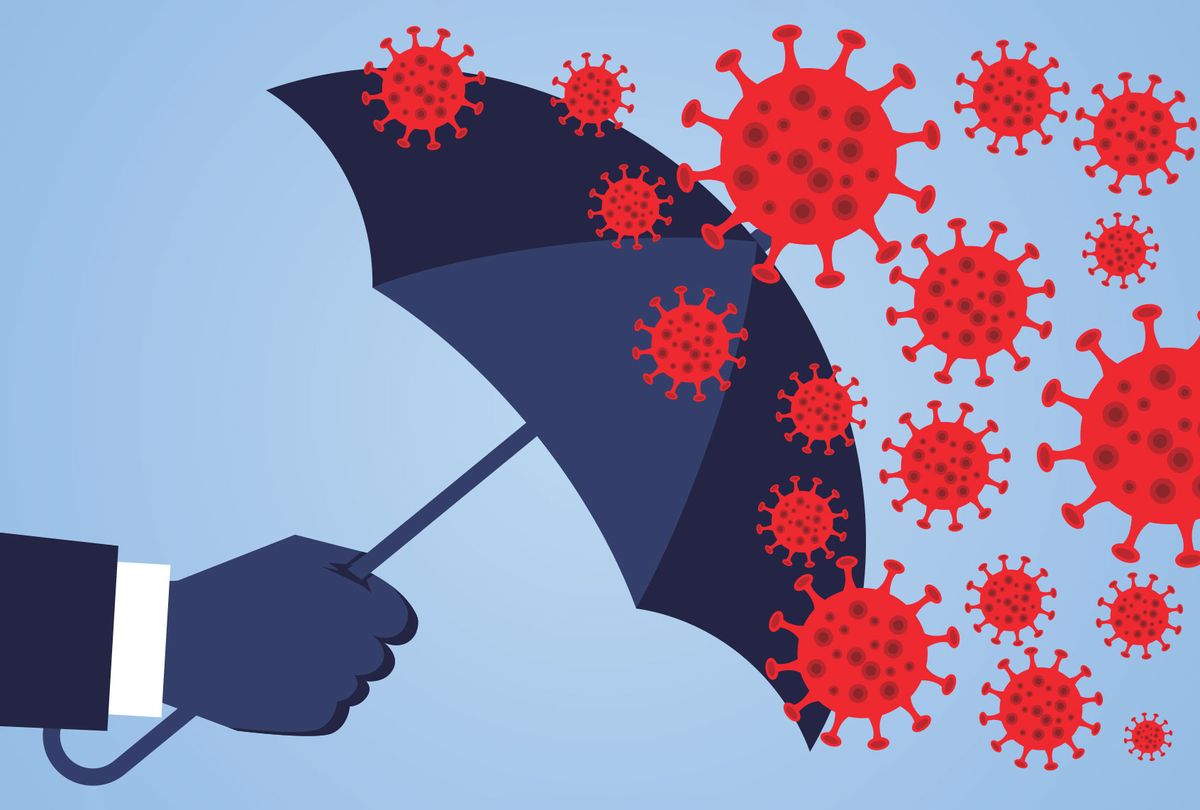As the COVID-19 vaccine rolls out, many of those who have contracted coronavirus are wondering if they should still get vaccinated. It's a vital question with its roots in the science of immunology: indeed, with some viruses, such as chicken pox, the patient becomes immune for life after contracting them; in the case of other viruses, such as many influenzas, patients' immune systems "forget" how to identify and protect agains the virus after a period of time, which may be months or years. Since the novel coronavirus is so new, it was unknown how long after recovering from the virus the body would remain immune, and whether that might affect one getting the vaccine.
Now, the Centers for Disease Control and Prevention (CDC) is saying that those who have recovered from COVID-19 should still get the vaccine. Their recommendation comes, in part, due to a lack of conclusive data around how long immunity lasts after being infected.
"Experts do not yet know how long someone is protected from getting sick again after recovering from COVID-19,'" the CDC states.
And yet, experts are working around the clock to find out. According to a new study published on Thursday, scientists at Public Health England (PHE) think that natural immunity lasts up to five months — but that's not an absolute certainty, and it comes with some caveats.
There have been multiple cases of patients getting coronavirus twice, which is evidence that being infected doesn't make one immune forever, at least in certain patients. Previous studies have suggested natural immunity lasts between three and six months. But the new study out of the UK frames it in a different way. Specifically, the study found that a previous infection of COVID-19 lowers the risk of reinfection by 83 percent compared to people who have not been infected before. Putting a percentage on the chance of getting reinfected is useful for public health experts and citizens alike to calculate risk.
The study regularly tested nearly 21,000 health workers for COVID-19 and COVID-19 antibodies in the United Kingdom National Health Service between June and November of 2020. In that span, 6,614 participants tested positive for COVID-19 antibodies, and 14,000 had no signs of previous infection. However, of those who had tested positive for antibodies, 44 healthcare workers tested positive for antibodies had "potential reinfections," according to a press release about the study, months later.
So what does this mean?
"This means even if you believe you already had the disease and are protected, you can be reassured it is highly unlikely you will develop severe infections . . . but there is still a risk that you could acquire an infection and transmit to others," said Susan Hopkins, Public Health England senior medical advisor and the study study's lead, in a press statement. "It is vital we all stay at home to protect our health service and save lives."
Another equally concerning finding from the research is that previously-infected people can still carry high enough levels of the coronavirus that could continue to infect others.
"We now know that most of those who have had the virus, and developed antibodies, are protected from reinfection, but this is not total and we do not yet know how long protection lasts," Hopkins said. " Crucially, we believe people may still be able to pass the virus on."
Hopkins emphasized that this study has painted "the clearest picture to date of the nature of antibody protection against COVID-19," but that these "early findings" should not be "misunderstood." In other words, don't let this ruin your day.
As Salon has explained before, it's difficult to study long-term immunity using human data because the coronavirus is so new to science. One study that gained a lot of attention published a study in the scientific journal Nature Medicine suggested that natural immunity can last up to 12 months— but that was based on studying four different seasonal coronaviruses, not the novel coronavirus (known as SARS-CoV-2).
Some viruses, such as measles, confer lifelong immunity on those who have either contracted them or been vaccinated against them. Yet the science continues to suggest that is not the case with SARS-CoV-2. How long immunity lasts from the COVID-19 vaccine is also unknown, but if it ends up being "transient immunity," that could mean that the vaccine is not a one-and-done deal. It could require a booster, or even be a seasonal vaccine — like for influenza.
"This may end up being a vaccine that's not a one-time thing or even a two-time thing, it may end up being like, one time and a booster, or it may end up being what we call either a seasonal vaccine, or vaccine that needs to be administered every couple of years," said Dr. Charles Chiu, a professor of infectious diseases at the University of California–San Francisco, in September. He noted that transient immunity could cause problems for the country reaching herd immunity, too. Public health experts hope that humans will ultimately eradicate the coronavirus with a mix of vaccination and mitigation strategies, like mask-wearing and social distancing.
"The hope is that the vaccine, while it may not be 100 percent effective or durable, is enough so that then, if we have enough testing and containment measures in place, we can simply eradicate the virus," Chiu said.



Shares